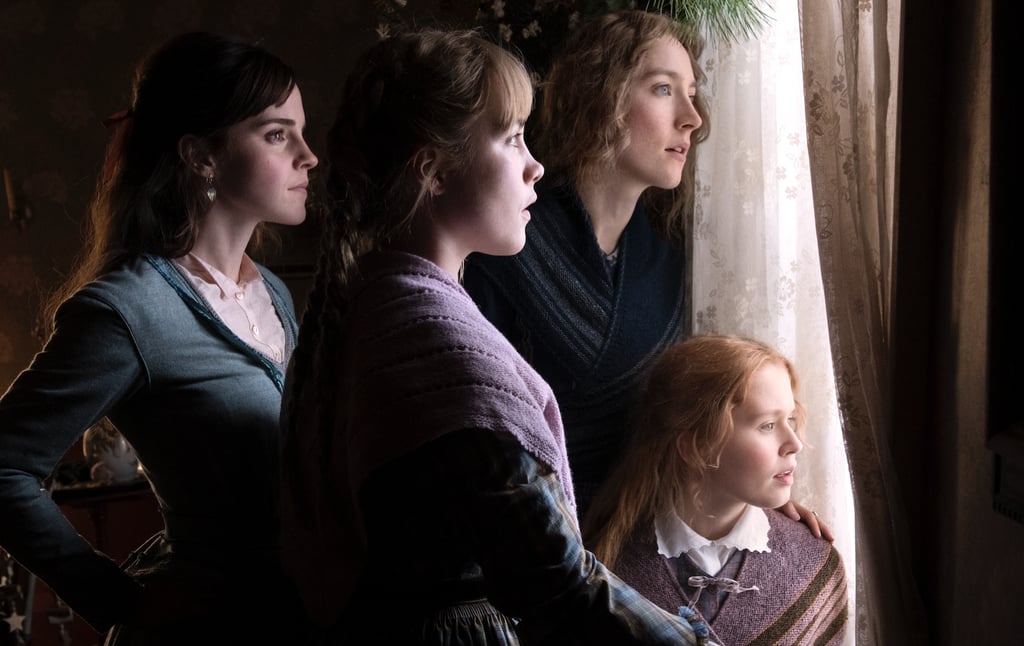GamesRadar+ Verdict
Greta Gerwig’s warm, woke take on America’s classic girlhood novel takes liberties, but makes a tender, engrossing tale.
Why you can trust GamesRadar+
For Hollywood, Little Women is the gift that really, really keeps on giving. No fewer than eight big-screen versions of Louisa May Alcott’s beloved tale of Civil War girlhood have been released since 1917. Each has reflected the preoccupations of its own era, from Depression-era frugality to ’40s girl-next-door wholesomeness, to ’90s girl power.
And now there’s writer/director Greta Gerwig’s rich, lively and risk-taking adaptation, which finds stirring 21st-century resonances in the March sisters’ coming-of-age quest for both freedom and love. Like Francis Ha and Mistress America (which Gerwig co-wrote with Noah Baumbach), and her solo directorial bow Lady Bird, its restless heroines are bursting with creative ambitions (Jo’s writing, Meg’s acting, Amy’s painting) and hungry for new horizons.
But Gerwig’s most audacious gambit is splitting the sisters’ girlhood and young-adult struggles into two interwoven timelines, linked by struggling New York writer Jo (a feisty Saoirse Ronan) musing on their childhood japes and dreams. A smart way to make a much-told story feel fresh and relatable, it grabs us by laying out their tougher, more conflicted grown-up lives from the off. We’re plunged straight into family breadwinner Jo’s publishing battles; meanwhile, husband-hunting Amy (a riveting Florence Pugh) is the toast of Paris and newlywed Meg (a game Emma Watson) is adjusting to low-waged love.
Viewed through their adult eyes, defining incidents gain poignancy or even irony: Amy’s icy near-drowning, the burning of Jo’s manuscript, Meg’s secret romance, Beth’s terrifying illness… and through it all there’s lonely boy-next-door Laurie (a sweet but scrappy Timothee Chalamet) swerving his love from one sister to another across the years.
Always playful and fast-paced, the film feels expansive and wide-ranging, as greedy to take in art, music and boisterous parties as its heroines. Gerwig’s handsome recreation of 1860s America has an exquisite period feel, recalling Scorsese’s The Age Of Innocence, or Jane Campion’s Portrait Of A Lady in its note-perfect costumes and interiors. It dodges the sumptuous-but-static ‘heritage movie’ pitfalls by making the camera dance around the chattering, scrapping sisterhood, through rolling Massachusetts landscapes and beaches, lavish Parisian balls and rowdy New York taverns.
Gerwig’s gorgeous, restless visuals and unstuffy dialogue ensure her domestic story has a defiantly modern vibe, aided by Alexandre Desplat’s subtly romantic orchestral score. Saoirse Ronan’s fierce intensity as Jo, whom she fills with yearning tomboy frustration, also bowls the film along brilliantly. She measures up differently but effortlessly to Jo’s previous cinema incarnations, such as 1933’s headstrong Katharine Hepburn, or Winona Ryder’s bookish 1994 outsider. Romping with the infatuated Laurie as teens, she creates a bickering, androgynous bond with him (in one delicious scene they dance like dervishes outside a posh party) whose piercing rows and reconciliations will spawn endless feverish fan-GIFS.
There’s a downside, however, to Gerwig’s breezy chopped-up plotting, and her decision to use the same cast for both girl and grown-up strands. Newcomers to Little Women risk occasional story confusion when similar events but dissimilar timescales are only differentiated by Girlish Loose Hair versus Adult Up-Dos, or nostalgic golden lighting rather than the later chillier look. Eliza Scanlen’s saintly, sickly Beth gets particularly shortchanged on screentime, lacking the glowing goodness that Claire Danes brought to the ’94 version. Laura Dern’s charming, slavery-hating Marmee also makes fewer appearances than you’d expect. Home-loving Meg, swept into an earnest sliver of romance with James Norton’s straight-laced tutor, doesn’t give Emma Watson much to chew on either. But around them, a bevy of powerful performances from Ronan, Chalamet and Meryl Streep (as the gloriously sharp-tongued Aunt March) fire up every scene.
That said, Florence Pugh’s powerful portrayal of Amy’s journey from selfish, lime-sucking brat to sleek sophisticate is the film’s star-making turn. Her fervent defence of marriage as an economic proposition for wageless 19th-century women who were their father’s or husband’s property gives the film a sobering shot of feminist rage. Behind the pretty period wrappings lies a movie positively bursting with pent-up feelings. Raging ambition, unrequited love, sisterly jealousy and sharp grief light up the wholesome narrative like fireworks. Gerwig even solves the book’s irritating insistence on taming wild Jo, by creating a cheeky meta-solution that combines her role as a savvy author with her longing for love.
If you can keep a handhold on the plot, Little Women is a heartfelt, uplifting movie you can happily lose yourself in, offering a respite from our own hard times. For women, it’s also a welcome reminder of the enduring importance of being the heroine of your own life, not the victim.
Kate is a freelance film journalist and critic. Her bylines have appeared online and in print for GamesRadar, Total Film, the BFI, Sight & Sounds, and WithGuitars.com.



